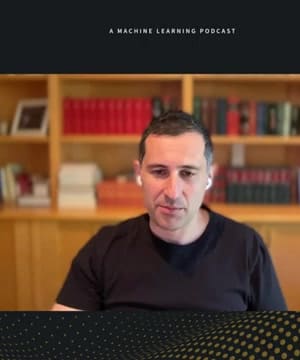Jake heller
Sources:
I found a person named Jake Heller who is the co-founder and CEO of Casetext. He has been pivotal in integrating AI into legal research, significantly enhancing efficiency and reducing the time required for research tasks. His background includes serving as a litigator at Ropes & Gray and as president of the Stanford Law Review. He also clerked for Judge Michael Boudin at the U.S. Court of Appeals for the First Circuit. Under his leadership, Casetext was acquired at a valuation of $650 million.
Jake Heller has been featured on several podcasts, including the "AI Chat: ChatGPT & AI News, Artificial Intelligence, OpenAI, Machine Learning" 1 and the "Y Combinator Startup Podcast" 2.
RELATED QUESTIONSfrom the YC podcast what are his key points
Sources:
In a discussion on the , shared several key points about his journey with Casetext and insights into the legal tech industry:
-
Evolution of Technology: Jake emphasized the significant potential of applying advanced technology in the legal field. Initially, Casetext focused on crowdsourcing and using early natural language processing tools to enhance legal work. Over time, they adapted to newer AI capabilities to build products that substantially improved lawyers' efficiency and effectiveness 1.
-
Product-Market Fit Challenges: Jake mentioned the challenges in initially identifying product-market fit. They began with larger clients but eventually switched focus to smaller firms, realizing the variety in readiness and adoption of technology among law firms 2.
-
AI's Transformative Role: With advancements like GPT-4, Casetext developed AI-driven products that dramatically improved productivity, such as reducing the time taken to review large volumes of documents. This breakthrough technology was critical in transforming legal workflows and demonstrated the immediate value to clients, showcasing what a significant product-market fit feels like 3.
-
Importance of Adaptation and Persistence: Throughout the conversation, Jake highlighted the importance of adapting, learning from mistakes, and being persistent. He shared that their success was built over time, often involving shifts in strategy and understanding of the market's needs. This perseverance ultimately led Casetext to become a major player in legal tech, recognized for its innovation and impact on the industry 4.
RELATED QUESTIONS-
what about with the technology part of this podcast? Engineering wise how did he build his product what can I learn from it
Sources:
In the , there are some valuable insights regarding engineering and building products:
-
Importance of In-House Engineering: A successful product often requires more than just following a specification. It involves being actively involved in the iterative process of building and improving the product. This is why , Group Partner at Y Combinator, highlights that while contracting firms can help, having an in-house team that feels like the founding team is crucial. This internal team should have a sense of ownership and be deeply integrated with the company’s vision and product development 1.
-
Prototyping and Iteration: David de Matheu, discussing Y Combinator's approach to pivoting and developing startups, emphasizes "failing fast" and quickly proving the viability of ideas. This involves rapidly building prototypes—ideally within a few weeks—to test and refine ideas, ensuring they don't over-engineer from the start 2.
From these insights, you can learn the importance of having a dedicated, core engineering team that drives the product development with an iterative approach. Rapid prototyping and quick iteration are key strategies in efficiently building and scaling tech products, particularly in software, to quickly validate and refine ideas.
RELATED QUESTIONS-
specifically about jake heller. In his YC podcast. What are the engineering takeaways
Sources:
In the , Jake Heller shares several engineering and product development insights based on his experience:
-
Focus on Domain Expertise: Building a successful product often requires deep domain knowledge. Heller emphasizes that having team members who are domain experts, from top to bottom, gave them a significant advantage. They could intuitively understand customer needs and design solutions that aligned with those needs, which is crucial when creating complex products like AI systems for legal work 1.
-
Rapid Prototyping: Heller discussed the importance of quickly creating a demo to showcase the potential of a product. This approach not only helps in gaining interest and support but also acts as a foundational step to refine and build out a full-fledged product 1.
-
Testing and Feedback: While traditional engineering often involves test-driven development, Heller points out that with AI technologies, there is a shift towards a need for more exploratory testing. Understanding how the AI responds and performs in real-world scenarios helps in refining the system 1.
From these takeaways, you can learn the importance of leveraging domain expertise, quickly prototyping ideas, and utilizing feedback loops, especially in the context of developing AI-driven solutions.
RELATED QUESTIONS-

